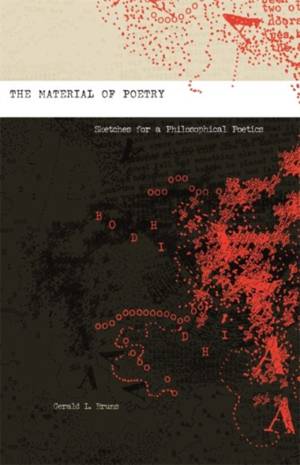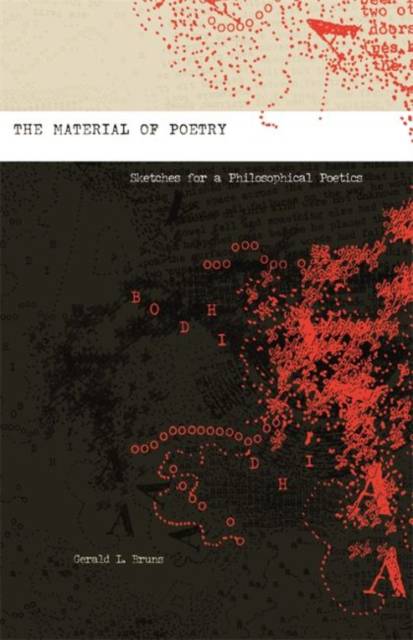
- Retrait gratuit dans votre magasin Club
- 7.000.000 titres dans notre catalogue
- Payer en toute sécurité
- Toujours un magasin près de chez vous
- Retrait gratuit dans votre magasin Club
- 7.000.0000 titres dans notre catalogue
- Payer en toute sécurité
- Toujours un magasin près de chez vous
Description
Poetry is philosophically interesting, writes Gerald L. Bruns, "when it is innovative not just in its practices, but, before everything else, in its poetics (that is, in its concepts or theories of itself)." In The Material of Poetry, Bruns considers the possibility that anything, under certain conditions, may be made to count as a poem. By spelling out such enabling conditions he gives us an engaging overview of some of the kinds of contemporary poetry that challenge our notions of what language is: sound poetry, visual or concrete poetry, and "found" poetry.
Poetry's sense and meaning can hide in the spaces in which it is written and read, says Bruns, and so he urges us to become anthropologists, to go afield in poetry's social, historical, and cultural settings. From that perspective, Bruns draws on works by such varied poets as Gertrude Stein, Ezra Pound, Steve McCaffery, and Francis Ponge to argue for three seemingly competing points. First, poetry is made of language but is not a use of it. That is, poetry is made of words but not of what we use words to produce: concepts, narratives, expressions of feeling, and so on. Second, as the nine sound poems on the online audio recordings included with the book demonstrate, poetry is not necessarily made of words but is rooted in, and in fact already fully formed by, sounds the human body can produce. Finally, poetry belongs to the world alongside ordinary things; it cannot be confined to some aesthetic, neutral, or disengaged dimension of human culture. Poetry without frontiers, unmoored from expectations, and sometimes even written in imaginary languages: Bruns shows us why, for the sake of all poetry, we should embrace its anarchic, vitalizing ways.Spécifications
Parties prenantes
- Auteur(s) :
- Editeur:
Contenu
- Nombre de pages :
- 168
- Langue:
- Anglais
- Collection :
Caractéristiques
- EAN:
- 9780820344171
- Date de parution :
- 01-09-12
- Format:
- Livre broché
- Format numérique:
- Trade paperback (VS)
- Dimensions :
- 140 mm x 216 mm
- Poids :
- 181 g

Les avis
Nous publions uniquement les avis qui respectent les conditions requises. Consultez nos conditions pour les avis.






